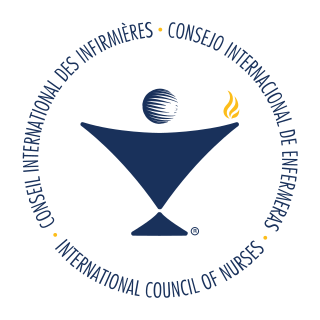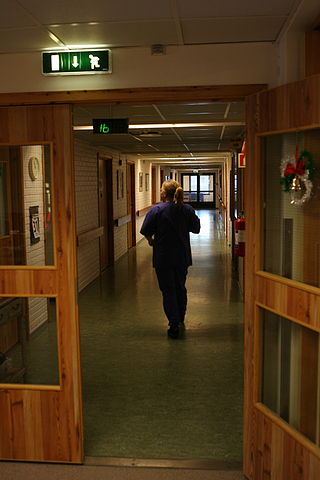The Bachelor of Science in Nursing also known in some countries as a Bachelor of Nursing (BN) or Bachelor of Science (BS) with a Major in Nursing is an academic degree in the science and principles of nursing, granted by an accredited tertiary education provider. The course of study is typically three or four years. The difference in degree designation may relate to the amount of basic science courses required as part of the degree, with BScN and BSN degree curriculums requiring completion of more courses on math and natural sciences that are more typical of BSc degrees and BN curriculums more focused on nursing theory, nursing process, and teaching versions of general science topics that are adapted to be more specific and relevant to nursing practice. Nursing school students are generally required to take courses in social and behavioral sciences and liberal arts, including nutrition, anatomy, chemistry, mathematics, and English. In addition to those courses, experience in physical and social sciences, communication, leadership, and critical thinking is required for a bachelor's degree. BSN programs typically last 2–4 years. Someone who holds a BSN can work in private or public medical and surgical hospitals, physician's offices, home health care services, and nursing facilities. Having a BSN can result in more opportunities and better salary than just an associate degree.
The American Nurses Association (ANA) is a 501(c)(6) professional organization to advance and protect the profession of nursing. It started in 1896 as the Nurses Associated Alumnae and was renamed the American Nurses Association in 1911. It is based in Silver Spring, Maryland and Jennifer Mensik Kennedy is the current president.

The International Council of Nurses (ICN) is a federation of more than 130 national nurses associations. It was founded in 1899 and was the first international organization for health care professionals. It is headquartered in Geneva, Switzerland.

The Sigma Theta Tau International Honor Society of Nursing (ΣΘΤ) is the second-largest nursing organization in the world with approximately 135,000 active members.
Nursing credentials and certifications are the various credentials and certifications that a person must have to practice nursing legally. Nurses' postnominal letters reflect their credentials—that is, their achievements in nursing education, licensure, certification, and fellowship. The letters usually appear in the following order:
The Canadian Federation of Nurses Unions is a trade union centre in Canada. The CFNU is a federation of provincial unions representing nurses, nurse practitioners, student nurses, and various allied health care workers. It advocates on a national level for issues related to nurses, patient care, the health care system, and working conditions. As of 2023, the CNFU represents nearly 250,000 nurses and student nurses across Canada, who are members of the nine provincial nurses unions and Canadian Nursing Students’ Association.

The Space Nursing Society is an international space advocacy organization devoted to space nursing and space exploration by registered nurses. The society is an affiliated, non-profit special interest group associated with the National Space Society.
Faith Community Nursing, also known as Parish Nursing, Parrish Nursing, Congregational Nursing or Church Nursing, is a movement of over 15,000 registered nurses, primarily in the United States. There are also Parish nurses in Australia, the Bahamas, Canada, England, Ghana, India, Kenya, Korea, Madagascar, Malawi, Malaysia, New Zealand, Nigeria, Palestine, Pakistan, Scotland, Singapore, South Africa, Swaziland, Ukraine, Wales, Zambia and Zimbabwe. Faith community nursing is a practice specialty that focuses on the intentional care of the spirit, promotion of an integrative model of health and prevention and minimization of illness within the context of a community of faith. The intentional integration of the practice of faith with the practice of nursing so that people can achieve wholeness in, with, and through the population which faith community nurses serve.

The Canadian Nurses Association (CNA), known in French as the Association des infirmières et infirmiers du Canada (AIIC), is the national professional association representing registered nurses, nurse practitioners, licensed and registered practical nurses, registered psychiatric nurses and retired nurses across all 13 provinces and territories in Canada. CNA advances the practice and profession of nursing to improve health outcomes and strengthen Canada's publicly funded, not-for-profit health system. CNA represents Canadian nursing to other organizations and to governments nationally and internationally. It gives nurses a strong national association through which they can support each other and speak with a powerful, unified voice. It provides nurses with a core staff of nursing and health policy consultants and experts in other areas such as communications and specialty certification. CNA's active role in legislative policy influences the health care decisions that affect nursing professionals every day. It has published a large number of documents, including the Code of Ethics for Registered Nurses.

Chinese General Hospital Colleges is a medical school located in Manila, Philippines. It was established in 1921 as the Chinese General Hospital School of Nursing (CGHSN). It is owned and managed by the Philippine Chinese Charitable Association (PCCA) Inc. as a non-profit service organization. In 2012 the college began to offer courses such as Bachelor of Science in Medical Technology, BS in psychology, BS in Radiologic Technology and Diploma in Midwifery. In 2017 it opened the College of Medicine, which incorporates Traditional Chinese Medicine in its curriculum.

A nursing shortage occurs when the demand for nursing professionals, such as Registered Nurses (RNs), exceeds the supply locally—within a healthcare facility—nationally or globally. It can be measured, for instance, when the nurse-to-patient ratio, the nurse-to-population ratio, the number of job openings necessitates a higher number of nurses than currently available, or the current number of nurses is above a certain age where retirement becomes an option and plays a factor in staffing making the workforce in a higher need of nurses. The nursing shortage is global according to 2022 World Health Organization fact sheet.

Gerontological nursing is the specialty of nursing pertaining to older adults. Gerontological nurses work in collaboration with older adults, their families, and communities to support healthy aging, maximum functioning, and quality of life. The term gerontological nursing, which replaced the term geriatric nursing in the 1970s, is seen as being more consistent with the specialty's broader focus on health and wellness, in addition to illness.
A legal nurse consultant is a registered nurse who uses expertise as a health care provider and specialized training to consult on medical-related legal cases. Legal nurse consultants assist attorneys in reading medical records and understanding medical terminology and healthcare issues to achieve the best results for their clients. The specialty is a relatively recent one, beginning in the mid-1980s.
Cina, Cinà or CINA may refer to:

Nursing is a health care profession that "integrates the art and science of caring and focuses on the protection, promotion, and optimization of health and human functioning; prevention of illness and injury; facilitation of healing; and alleviation of suffering through compassionate presence". Nurses practice in many specialties with varying levels of certification and responsibility. Nurses comprise the largest component of most healthcare environments. Shortages of qualified nurses are found in many countries.

The United Nurses of Alberta (UNA) is a trade union representing more than 30,000 Registered Nurses, Registered Psychiatric Nurses, and allied health workers in Alberta, Canada. UNA negotiates collective bargaining with the employers, of which the largest are Alberta Health Services and Covenant Health.
Nursing in Japan did not develop as an occupation until the end of the nineteenth century. Initially introduced only in Tokyo in the late 1860s, small schools utilizing Western models were being opened by the late 1880s. In response to disaster relief, the Japanese Red Cross became an integral part of nursing development. By 1915, nurse registration had been established and public health nurses began working throughout the country. Nursing universities were established in the twentieth century and regulations were passed to develop standards for training and public health.
The National Student Nurses' Association (NSNA) is a nonprofit organization founded in 1952 in the United States to mentor nursing students preparing for initial licensure as a Registered Nurse and promote professional development.
Ann Thomas Callahan was a Canadian Cree nurse. She was one of the first Indigenous graduates of the Winnipeg General Hospital's nursing school.









